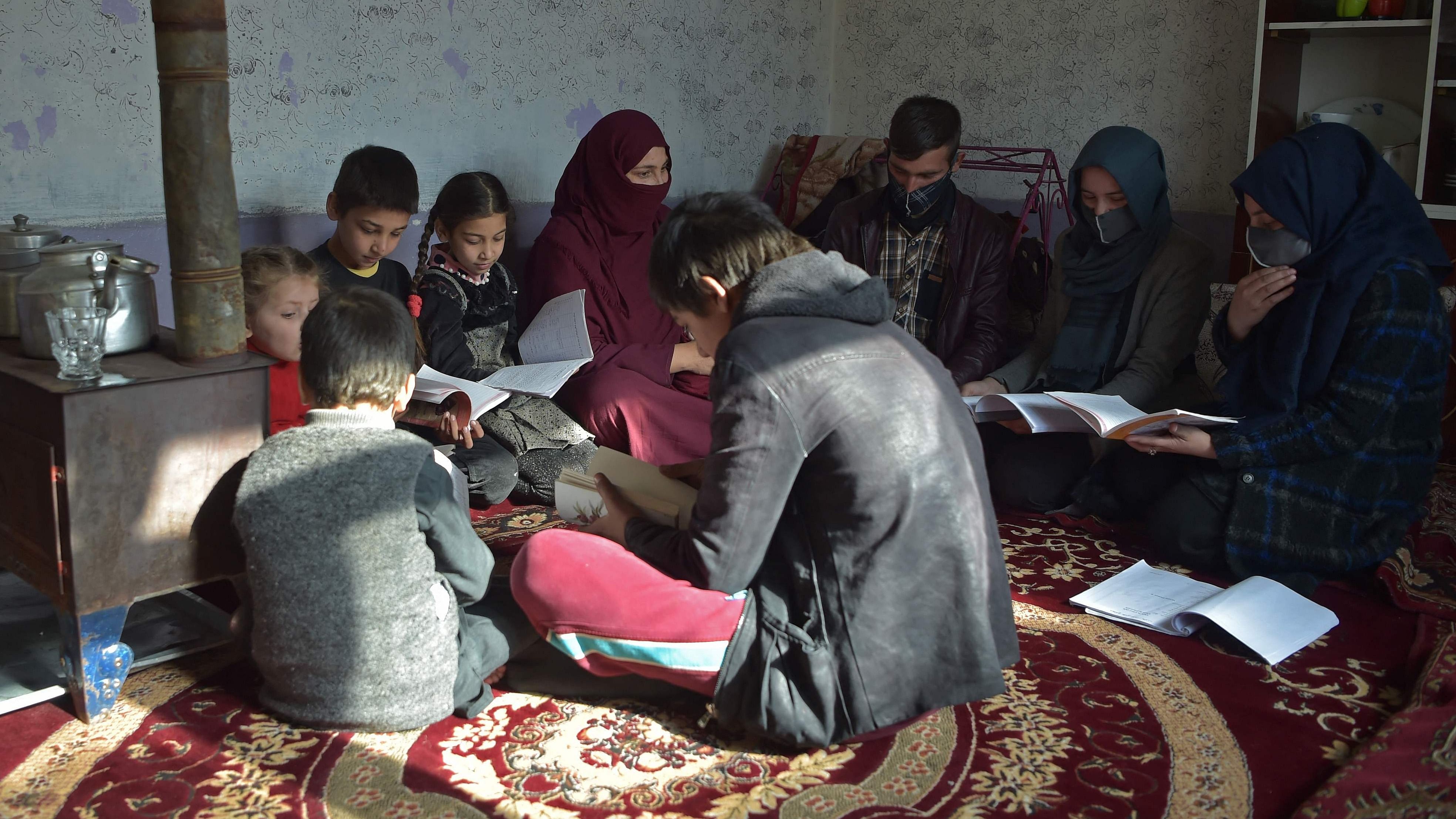
On December 20, the Taliban's de facto authorities issued a letter suspending women and girls from attending universities and getting higher education in Afghanistan. Both public and private universities in the country were instructed to suspend access to female students immediately, in compliance with the cabinet decision.
Since the Taliban takeover of Afghanistan last August, girls have been excluded from secondary education, but the regime allowed women to study at universities in gender-segregated classrooms, provided they adhered to the Islamic dress code. With its latest attempt at isolating women further, the Taliban completed all the restrictions the regime imposed on Afghan women's lives in the 1990s - during their first stint in power and made Afghanistan the only country in the world to prohibit girls and women from receiving education.
The Taliban has defended its decision, saying such restrictions have been done to preserve "national interest" and women's "honour". The Taliban officials have also hinted at the lack of funds and the time required to restructure the syllabus along Islamic lines; as prospective triggers behind the decision. The Taliban had just three months ago allowed thousands of female students to sit for university entrance exams in most provinces across the country, which was touted as a positive development.
It is widely known that the issue of girls' education in Afghanistan has been a matter of acute concern for the international community, which has repeatedly put pressure on the Taliban regime to reopen girls' schools above sixth grade.
In early December, Indonesia and Qatar co-chaired an International Conference on Afghan Women's Education in Bali, Indonesia, to garner support for Afghan women's education. The meeting brought together representatives from 38 countries, international organisations, NGOs and academics and saw a significant issue-specific response from the world - the first of its kind since the change of regime in Afghanistan. The timing of the Taliban's ban on women's university education, therefore, can be seen as a complete defiance of the stated concerns of the international community.
As expected, the international community condemned the decision and expressed serious concern about the troubling move by the Taliban regime. The strong condemnation also signalled that the question of the international legitimacy of the regime will now be pushed even further.
Since August last year, there has been a massive rollback of women's rights in Afghanistan. The replacement of the Ministry of Women's Affairs by the infamous Ministry for Propagation of Virtue and Prevention of Vice (headed by a cleric) was perhaps the strongest symbol of that. The same existed during the previous Taliban period, from 1996 to 2001, when it became a notorious symbol of torture and abuse, particularly against women and girls. The ministry ruthlessly enforced restrictions on women and men through public beatings and imprisonment.
At their initial press conference on August 17, the Taliban tried to reassure Afghans and the world that they would respect human rights, including women's rights to gender equality. However, they chose to remain vague in their responses to questions pertaining to policies on women and gave a generic response saying: "they support women's rights under the Sharia (Islamic Law)". No further explanation was provided on what that would mean in practice.
Every passing day, however, brought further evidence that they are implementing a massive rollback of women's rights and freedom. Since returning to power, they have decimated women's rights to education, work and free movement; destroyed the system of support for women facing or fleeing domestic violence; arbitrarily detained women and girls for violations of the Taliban's bigoted rules; and contributed to a surge in the rates of child, early and forced marriage. The Taliban ordered women to wear head-to-toe clothing in public, and banned them from going to parks and gyms.
Afghan women have tried to fight back—taking to Kabul streets and peacefully protesting these restrictions and policies, even in the face of persecution. In response, the ruling authority harassed, threatened, arrested, forcibly disappeared, arbitrarily detained and tortured them. Reports of public flogging of women for "moral crimes" have become more frequent in the recent past bringing back the memories of their horrific past. Reflecting on the predicament of Afghan women under the Taliban regime, Amnesty International's July report observed that "it is a death in slow motion".
Since the beginning of the Ukraine Crisis, issues of Afghanistan have somewhat slipped from the priority of the international community. Yet, the issue of girls and women's education in Afghanistan has punctuated newspaper headlines internationally at regular intervals. The Bali Conference earlier this month indicated that the issue could become a rallying point for the international community.
So far, the emphasis has been on the need for the resumption of female education in Afghanistan- other pertinent questions, such as the kind of curriculum and education system the Taliban intend to propagate (for both boys and girls), were not raised.
The past months have shown the world that the ideological contours of the Taliban, that is, the fulcrum of their worldview, whether on issues related to gender, participation in public life, human rights, minority communities, issues of governance—how to deal with the citizen-state contract—remain the way they have been in the 1990s. This indicates that the international community has reasons to worry about Afghanistan's future and the future of Afghans.
The Taliban have made their contempt for the rights of women and girls crystal clear, thereby turning the country a hell on earth for at least half of its population. The question now is whether the international community will treat this situation like the emergency it is and rally to protect Afghan women's lives or be mere spectators to the atrocities committed by the Taliban regime- the way they did in the 1990s.
(Anwesha Ghosh is a strategic analyst and author based in New Delhi)
Disclaimer: The views expressed above are the author's own. They do not necessarily reflect the views of DH.